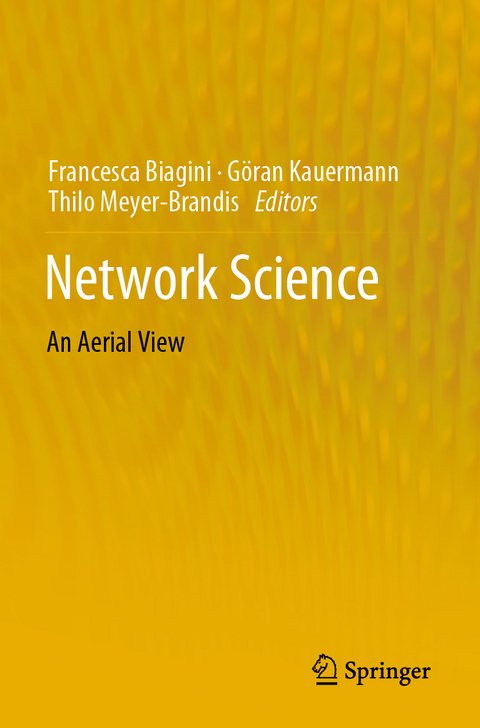
Network Science
Springer International Publishing (Verlag)
978-3-030-26816-9 (ISBN)
This book provides an overview of network science from the perspective of diverse academic fields, offering insights into the various research areas within network science. The authoritative contributions on statistical network analysis, mathematical network science, genetic networks, Bayesian networks, network visualisation, and systemic risk in networks explore the main questions in the respective fields: What has been achieved to date? What are the research challenges and obstacles? What are the possible interconnections with other fields? And how can cross-fertilization between these fields be promoted?
Network science comprises numerous scientific disciplines, including computer science, economics, mathematics, statistics, social sciences, bioinformatics, and medicine, among many others. These diverse research areas require and use different data-analytic and numerical methods as well as different theoretical approaches. Nevertheless, they all examine and describe interdependencies, associations, and relationships of entities in different kinds of networks.
The book is intended for researchers as well as interested readers working in network science who want to learn more about the field - beyond their own research or work niche. Presenting network science from different perspectives without going into too much technical detail, it allows readers to gain an overview without having to be a specialist in any or all of these disciplines.
lt;p>
Francesca Biagini is a Full Professor of Applied Mathematics and Head of the Department of Mathematics, Ludwig-Maximilians-Univerität München (LMU Munich), Germany. Her main research interests include martingale methods for insurance markets, quadratic hedging methods, mathematical models for the formation of financial bubbles, and stochastic calculus for fractional Brownian motion.
Göran Kauermann is a Full Professor of Statistics at the Department of Statistics, Ludwig-Maximilians-Universität München (LMU Munich), Germany. His main research interests include applied statistics in general, including semi- and nonparametric regression models, network data analysis and data science.
Thilo Meyer-Brandis is Professor of Applied Mathematics at the Department of Mathematics, Ludwig-Maximilians-Universität München (LMU Munich), Germany. His main research interests are within the field of probability theory with applications in financial and insurance mathematics, including stochastic (partial) differential equations, Malliavin calculus, mathematical models for systemic risk, pricing and hedging in commodity and electricity markets.
Preface.- Introduction (Francesca Biagini, Göran Kauermann, Thilo Meyer-Brandis).- Network Visualization (Ulrik Brandes and Michael Sedlmair).- A Statistician's View of Network Modeling (David R. Hunter).- The Rank-one and the Preferential Attachment Paradigm (Steffen Dereich).- Systemic Risk in Networks (Nils Detering, Thilo Meyer-Brandis, Konstantinos Panagiotou, Daniel Ritter).- Bayesian Networks for Max-linear Models (Claudia Klüppelberg, Steffen Lauritzen).- Introduction to Network Inference in Genomics (Ernst C. Wit).
| Erscheinungsdatum | 12.12.2020 |
|---|---|
| Zusatzinfo | IX, 119 p. 37 illus., 16 illus. in color. |
| Verlagsort | Cham |
| Sprache | englisch |
| Maße | 155 x 235 mm |
| Gewicht | 215 g |
| Themenwelt | Mathematik / Informatik ► Mathematik ► Wahrscheinlichkeit / Kombinatorik |
| Schlagworte | Bayesian networks • Complex Systems • genetic networks • mathematical network analysis • network science • network visualization • Random Networks • Social Networks • statistical analysis of network data • statistical network analysis • systemic risk |
| ISBN-10 | 3-030-26816-0 / 3030268160 |
| ISBN-13 | 978-3-030-26816-9 / 9783030268169 |
| Zustand | Neuware |
| Haben Sie eine Frage zum Produkt? |
aus dem Bereich


